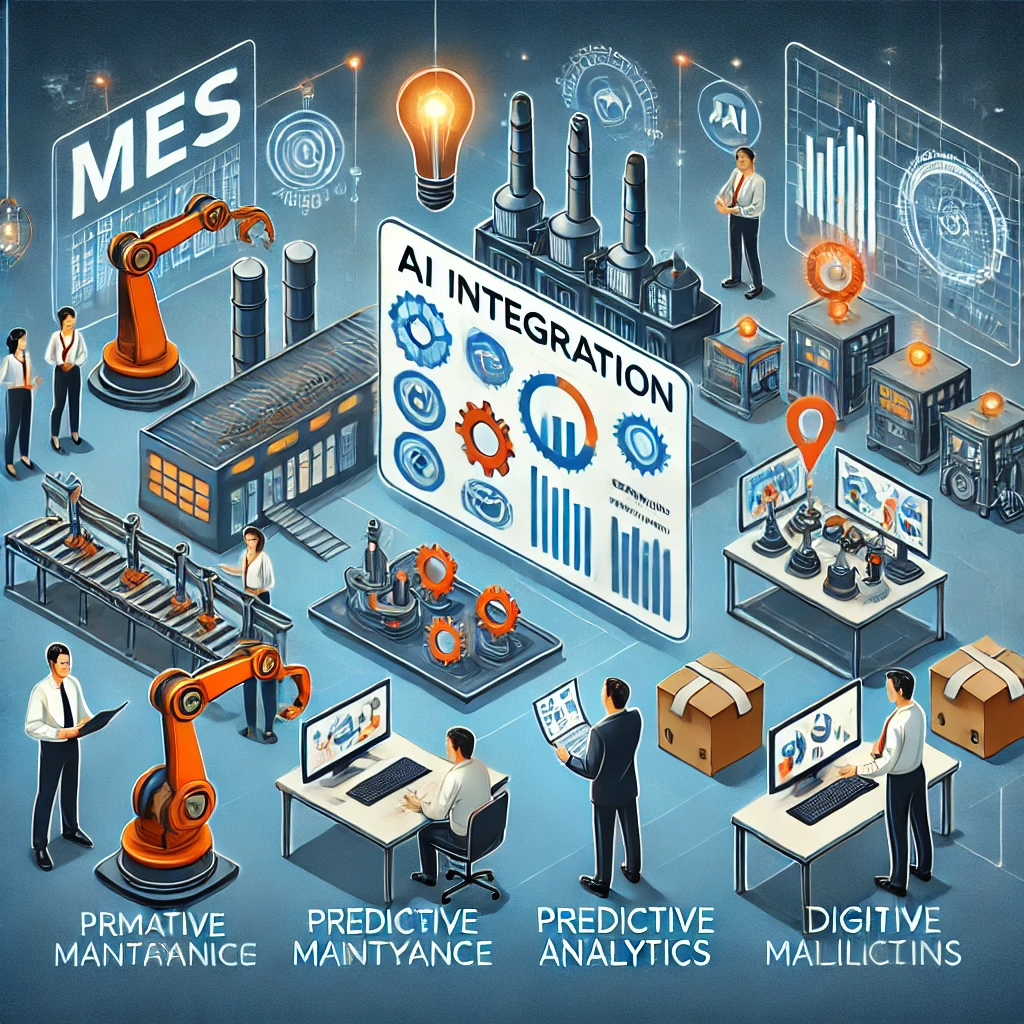MES Trends: Data Analytics and AI

The integration of Data Analytics and Artificial Intelligence (AI) into Manufacturing Execution Systems (MES) is transforming how manufacturers operate. These technologies enable real-time insights, predictive maintenance, and smarter decision-making, driving efficiency and innovation in modern manufacturing environments. As MES evolves, the role of data analytics and AI will only grow more central in enabling intelligent manufacturing processes.
Key Features of Data Analytics and AI in MES
1. Predictive Maintenance
AI-driven analytics can predict when machinery is likely to fail, allowing for timely maintenance and reducing downtime.
- Example: Automotive Industry
AI analyzes vibration and temperature data from production machinery to predict failures, ensuring repairs are made before breakdowns occur.
2. Enhanced Quality Control
Advanced analytics detect anomalies in production processes, ensuring consistent product quality.
- Example: Food Processing
AI-powered MES identifies deviations in ingredient proportions, preventing defective batches from reaching the market.
3. Real-Time Insights
MES provides real-time analytics, enabling quick responses to production challenges.
- Example: Electronics Manufacturing
Supervisors use MES dashboards to monitor and adjust assembly line speed based on production targets and machine performance.
4. Process Optimization
AI uses historical and real-time data to suggest optimal production parameters.
- Example: Textile Manufacturing
AI-driven MES recommends adjustments to dye temperatures, ensuring uniform color across fabric batches.
5. Digital Twins
Digital twins create virtual replicas of physical processes, enabling simulations and improvements without disrupting operations.
- Example: Aerospace Industry
Aerospace manufacturers simulate production line changes using digital twins, identifying potential issues before implementation.
Benefits of Data Analytics and AI in MES
| Feature | Benefit |
|---|---|
| Predictive Maintenance | Reduces unplanned downtime and extends equipment lifespan. |
| Enhanced Quality Control | Ensures consistent product quality and minimizes waste. |
| Real-Time Insights | Improves decision-making with up-to-date information. |
| Process Optimization | Maximizes efficiency and resource utilization. |
| Digital Twins | Simulates processes to test changes without disrupting production. |
Steps to Integrate Data Analytics and AI into MES
- Assess Data Readiness
Evaluate current data collection systems and ensure data is clean and standardized. - Adopt AI-Ready MES Platforms
Choose MES solutions with built-in AI capabilities or compatibility with third-party AI tools. - Invest in Training
Train employees to use advanced analytics tools and interpret AI-driven insights. - Implement in Phases
Roll out AI and analytics features gradually, starting with key areas like maintenance and quality control. - Monitor and Optimize
Continuously analyze the performance of AI-driven systems and refine them for better outcomes.
Future Trends in Data Analytics and AI for MES
- Edge Computing
Processing data closer to its source enables faster analytics and reduces reliance on cloud infrastructure. - AI-Powered Predictive Models
More accurate models will allow manufacturers to anticipate and mitigate production risks more effectively. - IoT and Big Data Integration
Combining IoT devices with big data analytics will provide deeper insights into production processes. - Autonomous Decision-Making
AI will enable MES to make decisions independently, further streamlining operations.
The integration of Data Analytics and AI into MES is revolutionizing manufacturing, providing unprecedented visibility and control over production processes. As manufacturers embrace these technologies, they can unlock higher efficiency, better quality, and innovative solutions for the challenges of modern manufacturing.
